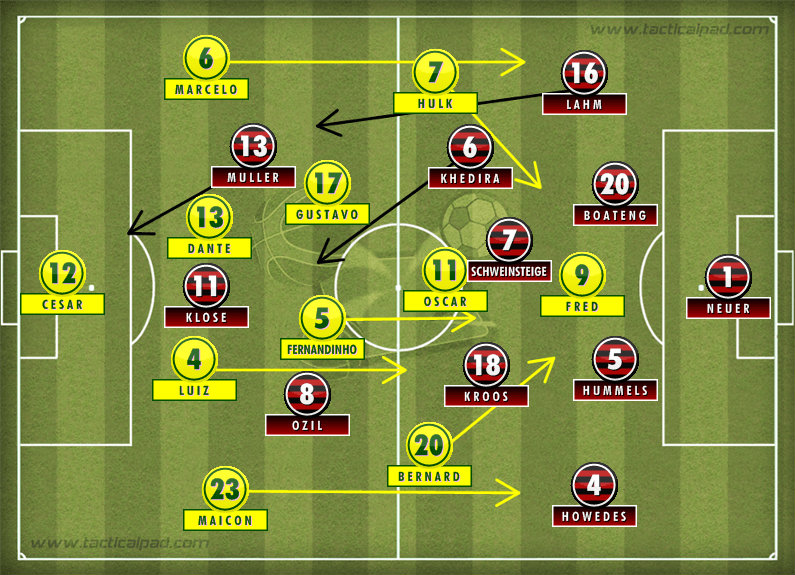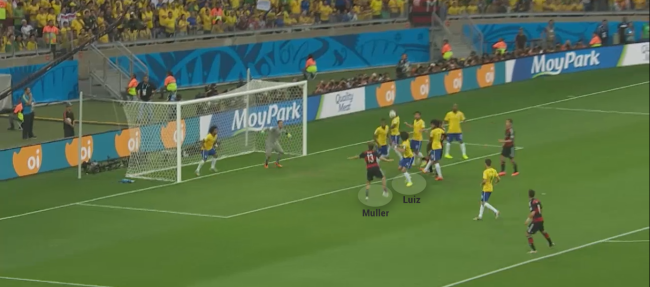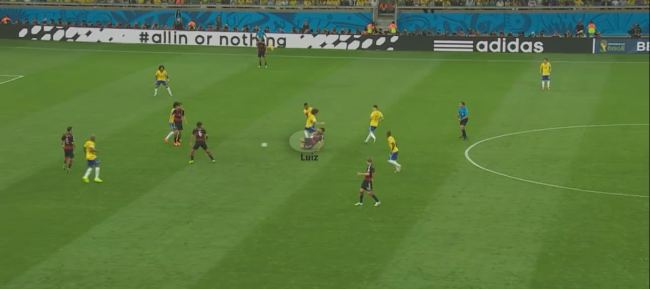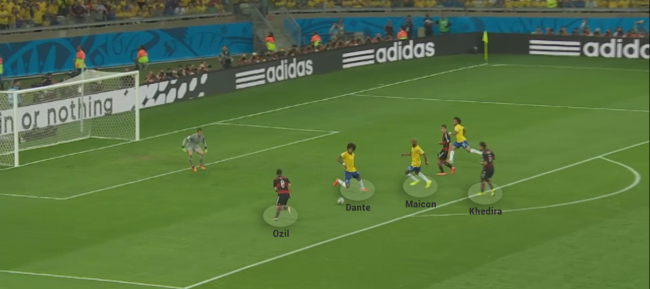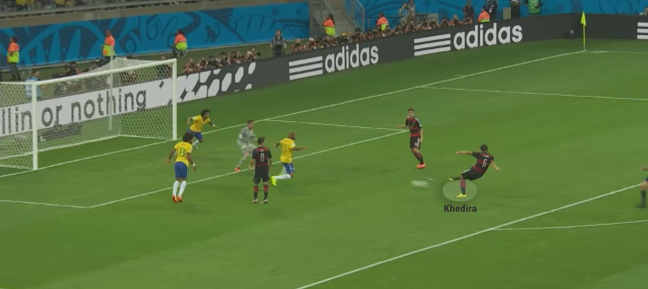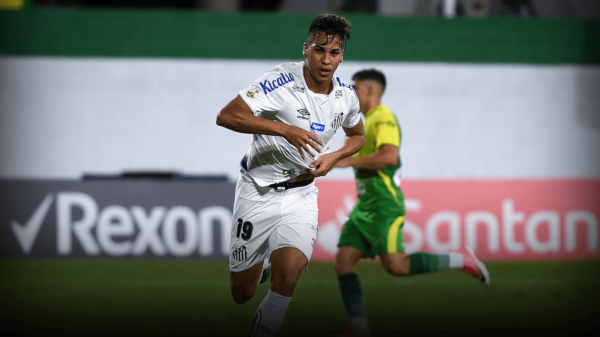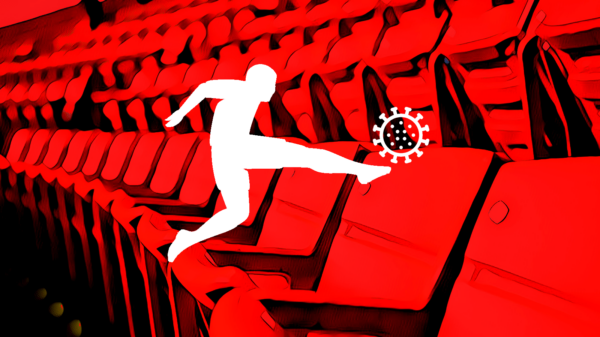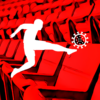While Brazilians still talk about 1950 with disappointment and horror, what transpired at the Belo Horizonte will bring nightmares to the South Americans for years to come. Aman Sardana analyses what happened, and what went wrong.
The enormous pressure, the inflamed anticipation, one nation’s obsession and hysteria amassed on the shoulders of a fervent and useful but ultimately imperfect team. They snapped under the stress, no doubt, but there was more to this than just pressure, or flawed tactics and team choice, or incompetent positional play, or a first-rate German squad filled with incisive passers and composed finishers. It was all of those things, and yet more. A first-half goal barrage saw Die Mannschaft 5-0 up, Miroslav Klose procured his record-breaking 16th strike at the finals and the cruelty prolonged into the second period with Schürrle coming off the bench and bagging a brace. Mesut Özil missed a one-on-one to make it 8-0, moments before Oscar netted a consolatory hit in the final minute of the first semifinal of World Cup 2014. But as it was, in 30 obscene first-half minutes, the Brazilian dream was over.
Formations & Line-ups
Brazil (4-2-3-1): Julio Cesar; Maicon, Dante, Luiz, Marcelo; Gustavo, Fernandinho (Paulinho 45’); Hulk (Ramires 45’), Oscar, Bernard; Fred (Willian 69’).
Germany (4-3-3): Neuer; Lahm, Boateng, Hummels (Mertesacker 45’), Howedes; Schweinsteiger, Khedira (Draxler 76’), Kroos; Özil, Klose (Schürrle 58’), Müller.
Goals: Müller 11’, Klose 23’, Kroos 24’ 26’, Khedira 29’, Schürrle 69’ 79’; Oscar 90’.
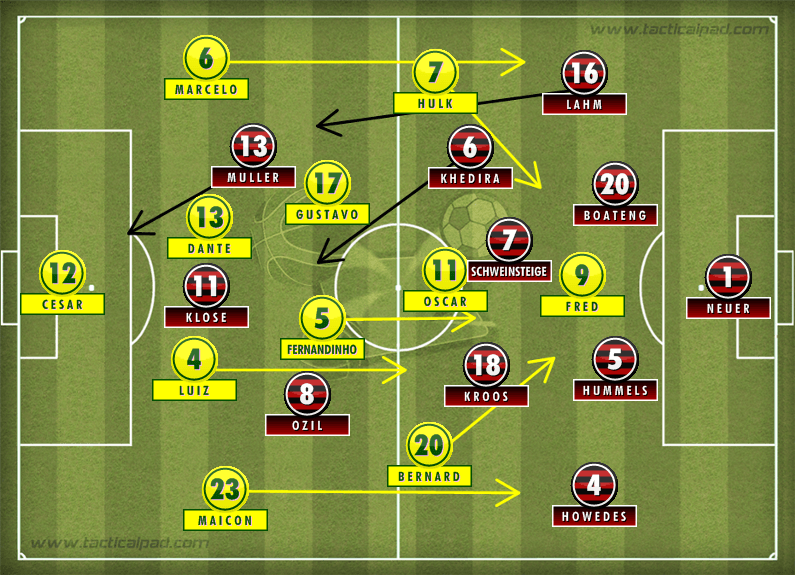
ANALYSIS
Brazil had possession, didn’t do anything with it
Germany set up in a solid 4-1-4-1 transitioning from the 4-3-3 they started with, scarcely pressurizing the Brazilian defenders when in control. It meant David Luiz and Dante saw a lot of the ball early in deep areas, but with no one to pass to in sight, they kept lobbing long diagonal balls into Bernard and Hulk and kept missing. The Selecao’s passing appeared particularly horrid after an upsetting first 30 minutes, with passes completed amid the centre-backs, into the holding midfielders, but then no further. More than half the passes were worthlessly launched forward, getting nowhere and giving possession back. Germany, in contrast, were the embodiment of effectual and thrifty distribution. They moved with fluidity, crafted interchanges outside the box and played unselfish, passing football.
TACTICAL ANALYSIS Brazil: Croatia 3-1 | Mexico 0-0 | Chile 1-1 | Colombia 2-1 Germany: Portugal 4-0 | Ghana 2-2 | USA 1-0 | Algeria 2-1 | France 1-0
At 5-0 down, Brazil had still seen appreciably more of the ball, but had operated mainly in their own half where they committed errors. While Scolari’s men continued to surge down the flanks, Löw’s team were strangulating them across the middle.

Brazil vs Germany: Passing in first 30′ | via FourFourTwo
Brazil’s terrible display in the attacking third
While their defence was causing enough problems, the few chances that the midfield could conceive were wasted as a result of Fred’s poor ball control and lack of instinct. This performance, once again raises questions about the desertion of that attacking thrust the Selecao used to possess. Hulk, yet again seemed uncomfortable on the left. He was completely blocked off by Lahm in the first 45’ and was substituted by Ramires at half time. While he did use his tremendous work rate, Oscar was left isolated and with very little options going forward. Brazil’s dismal first half performance was enough for the Germans to put the game to bed.
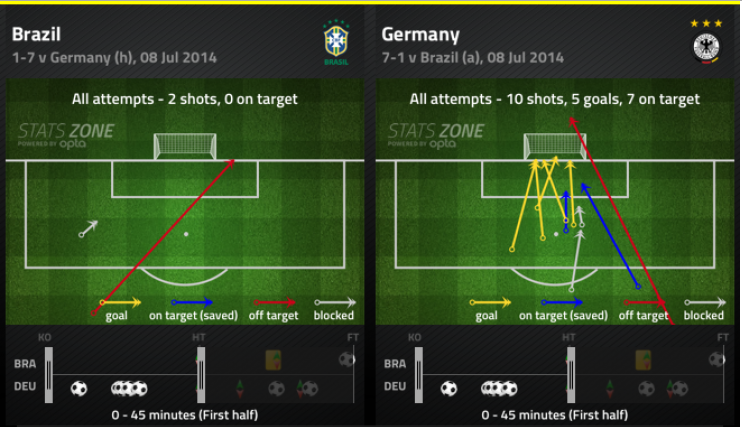
Brazil vs Germany: Shots in the first half | via FourFourTwo
When Neuer wasn’t frustrating them as the last line of defence, Die Mannschaft’s centre-backs were doing a reasonably good job of it elsewhere. Brazil were unsuccessful with each of their 20 crosses. Scolari chose Bernard ahead of Willian to take Neymar’s place in the squad. The 21 year old winger who plays for Donetsk, was blockaded by Howedes, and with Brazil compelled into longer passes, the converted centre-back got the better of him in aerial tussles. Maicon, who started at right back was seen making probing overlapping runs down that wing but failed to deliver while Marcelo was sloppy and gave away the ball far too easily.

Brazil’s failed crosses | via Squawka
Where was David Luiz?
At the crux of Brazil’s issues was David Luiz, who had one of those games some use to bolster the idea that he’s “not a proper central defender.” The evidence from this match is pretty gruelling to argue with in that respect. In the absence of Silva, the £50m man was supposed to be the key man in defence but he was miserable, out of position more often than not. As things got more and more frantic, he began intensifying his runs forward, and while his ultimate tally of 4 take-ons and 80% pass accuracy looks respectable, he caused his side many, many issues. Several of his errors resulted in German retaliations, and though that’s to be expected while chasing a game, there were way too many for comfort.

David Luiz’ Heat Map | via Squawka
An analysis of the defensive blunders
It’s not all David Luiz’ fault. He had his issues, as did Fred, but Brazil, as a collective unit, were very poor. 3 of 4 German assists were concise, quick passes with swift movement inside the box that had David Luiz and Dante tied up in knots. Here’s a look at some of the defensive errors that led to the goal rout.

Goal #4: Luiz spectates as Khedira moves into free space ahead of him. Kroos gets the final touch for his second goal.

Goal #6: Lahm finds himself between Marcelo & Oscar creating a gap while Schürrle gets in between Luiz & Dante to score his first.
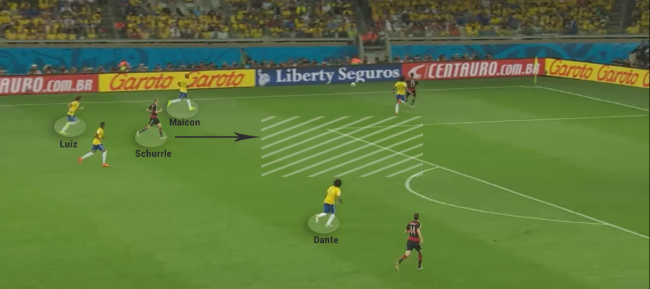
Goal #7: Brazilian defence is caught off-guard. Yet again, Luiz is behind Schürrle which allows the latter to move unmarked into an empty box and score with his left foot.
Key Player of the match
The Germans were propelled by their perfect midfield duo of Kroos and Khedira, though Bastian Schweinsteiger barely put a foot wrong behind them either. Kroos’ 2 goals helped him in putting in another flawless performance in which he made Germany tick. Expectedly, no player made more passes (66/71), while yet another of his corners produced a goal.
Where does this leave them?
If Germany performed well, Brazil freaked just long enough for the three-time champions to wreck them. It was, largely, an astoundingly distressing performance from Brazil – a showing in which their struggles, severs and gaping loopholes troubling them throughout the World Cup, were exposed and exploited. For Germany, Löw couldn’t have asked for this peak at a better time. They were average thus far, and have now cracked the semi-final, set to progress to the Maracanã full of belief, goals and conviction in their performance.




















































